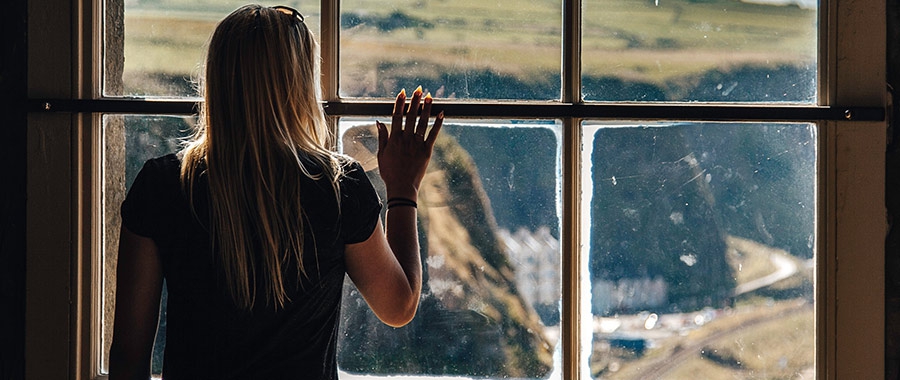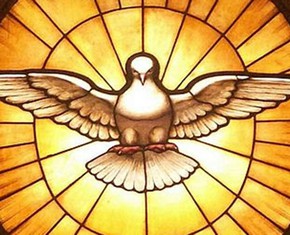The views expressed in our content reflect individual perspectives and do not represent the authoritative views of the Baha'i Faith.
Lately, I’ve reflected quite a bit on the meaning of “home.” We all have such unique experiences and relationships with the idea of home. Where is your true home?
In The Hidden Words, Baha’u’llah actually directed us to reflect inwardly on the concept of home:
O Son of Being! Thy heart is My home; sanctify it for My descent. Thy spirit is My place of revelation; cleanse it for My manifestation. – Baha’u’llah, The Hidden Words, p. 17.
For many, the concept of “home” offers roots, a foundation, and a sense of belonging. Home means the place where we find love and acceptance.
I recently returned from a trip visiting the city where I spent most of my childhood and youth. Since moving away eight years ago, I often called it home when people asked—but that always felt like an insincere stretch.
The truth is, throughout my roughly 30 years of life, I’ve lived on three continents, adopted several postcodes, and retreated to some of the most beautiful houses, apartments and bedrooms which I grew to call my own. I’m what some may call a real homemaker. I take a lot of pride in beautifying the spaces I live in, even if they’re temporary.
I often eased this lack of permanence with the comfort of knowing that no matter where I landed, I could always return to my family home in Brisbane, Australia. This, to me, represented what I thought home meant.
The family home, one that my parents designed and built themselves, was just an average-sized house—but it had a huge open concept living/dining room which could host the most wonderful and memorable gatherings. A most beautiful home, it had a large, colorful garden and big verandas on both top and bottom floors.
Frequently I would come home from school and there would be a new face drinking tea at the table with my mum or dad. People always passed through, many we knew and many we didn’t, but we undoubtedly become the dearest of friends with all. So many people regarded our home as their home away from home, because it was just so gosh darn warm and “homey.” I lived in that house for roughly a dozen years before I moved to Canada. After I’d moved away, most of my room stayed the same and my belongings remained in their rightful place. It always felt amazing to have something to come back to, where the memories lived on and I could always return to them. This home was truly an embodiment of the following words of Abdu’l-Baha:
My home is the home of peace. My home is the home of joy and delight. My home is the home of laughter and exultation. Whosoever enters through the portals of this home, must go out with gladsome heart. This is the home of light; whosoever enters here must become illumined. This is the home of knowledge: the one who enters it must receive knowledge. This is the home of love: those who come in must learn the lessons of love; thus may they know how to love each other. – Abdu’l-Baha, Star of the West, Volume 5, p. 40.
But it all ended when my parents sold the house and downsized a few years ago, after the last of my siblings moved away. We were heartbroken, but could empathize with their predicament.
Returning to my hometown most recently, without that real sense of home, seemed strange. Is a home still a home if that physical home no longer exists? Yes, I’d grown up in that city, and so much of what I remember was still intact, but so much had also changed, and the roots that I’d established, associated with and grown to depend on were no longer there. It’s like my family home was the center of the universe, and all the ties to everything surrounding it—places, faces, and memories—had been cut. It strangely didn’t feel like home anymore, which made me wonder: was it ever my home in the first place?
This tiny sense of displacement confused me. On the one hand I felt lost, while on the other I felt a shameful twinge of entitlement. But part of me also felt a huge sense of detachment and openness, at a level I hadn’t experienced before. Reflecting back on my ancestors and the case of millions and billions of people who came before me, in fact, many of whom live amongst us today, this construct of home is not considered a right, but a privilege. Only a select few have the opportunity to experience that privilege, as a result of the injustices that prevail in the vast majority of the world. I was one of the lucky few. Contemplating these notions of displacement and detachment, I came across the following words of Abdu’l-Baha:
The joy of tranquillity in one’s home, and the sweetness of freedom from all cares shall pass away, whilst the blessing of homelessness shall endure forever, and its far-reaching results shall be made manifest. – Abdu’l-Baha, Selections from the Writings of Abdu’l-Baha, pp. 280-281.
Reflecting on Abdu’l-Baha’s words on a spiritual level, if we attach ourselves to a physical structure or space, we actually limit our ability to experience blessings that go beyond our physical capacities and comprehension. The comfort we experience in our home is only for a short while, whereas the blessing of detachment from our earthly possessions enables us to walk the path to true freedom.
I returned to my home in Vancouver a few weeks later, with extra suitcases that contained the remains of what I’d held onto from my childhood and youth. All this was now a part of my new life, and nothing was left behind. It felt like a defining moment for me as a person, as one chapter closes and another one opens. I didn’t feel entirely free in the sense of the above passage by Abdu’l-Baha, but it felt good to have everything in one place.
I still love to put effort into beautifying my dwelling, although I’m learning that my life shouldn’t be dictated by this physical construct of home, but by a spiritual one. My old home was gone, but I was now going to build a new, ever-evolving one that remains fluid and could really be anywhere. Abdu’l-Baha said that a home is where the centre of light radiates, where we pray and praise the creator, not just a place to store our stuff:
I pray God to make thy home a center for the radiation of light and the glowing of His love in the hearts of His people. Know that in every home when God is praised and prayed to, and His Kingdom proclaimed, that home is a garden of God and a paradise of His happiness. – Tablets of Abdu’l-Baha, Volume 1, p. 69.
















Comments
Sign in or create an account
Continue with Googleor